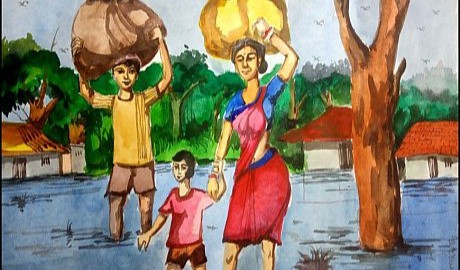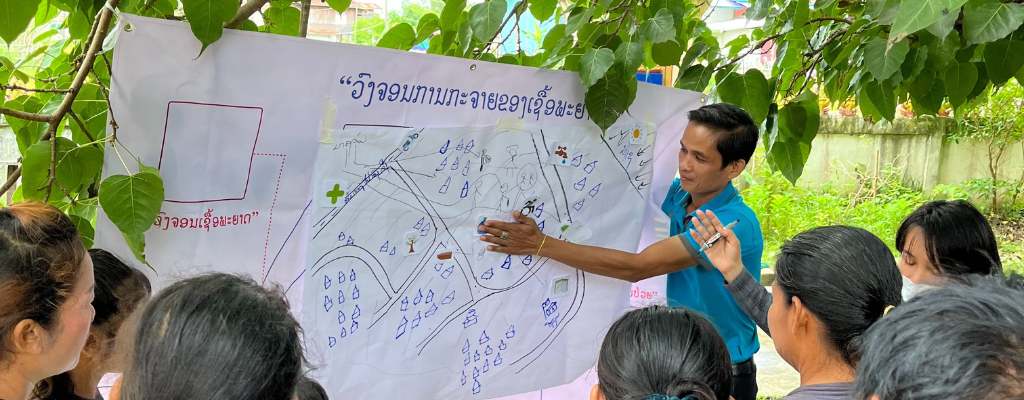Collaborations are central to how we work at IDS. The bedrock of this work is participation – of local communities and citizens, and of country-based researchers, businesses, advocates, activists and policymakers.
Building, sharing and valuing local knowledge was the springboard for the following collaborative projects on the effects of climate change.
Collaborating with impacted communities in India and Bangladesh
From 2019 to 2022, Transformation as Praxis: Exploring Socially Just and Transdisciplinary Pathways to Sustainability in Marginal Environments (TAPESTRY), a project co-hosted by IDS, worked alongside marginalised communities in three vulnerable coastal areas of India and Bangladesh. They explored transformative approaches to uncertainties caused by climate and other drivers of change. Roundtables between researchers and decision makers highlighted examples of positive and harmful adaptations.
Digital storytelling and artwork – exhibited in the UK and India – captured the responses of islanders, fishers and herders. Partner organisation Lokamata Rani Rashmoni Mission created an app – Beautiful Sundarbans – for knowledge exchange between islanders, community organisations and policymakers. This project was shortlisted for the Economic and Social Research Council (ESRC) International Impact prize.

Supporting local partners on climate-resilient sanitation practices
Evidence generated from a participatory project involving the IDS-based Sanitation Learning Hub (SLH) has enabled rural communities to develop sanitation practices that are more resilient to climate change – addressing a key knowledge gap in this area.
The SLH partnered with the Institute for Sustainable Futures in Sydney, Australia, in the two-year project. It produced and disseminated evidence to support local communities and organisations working in water, sanitation and hygiene (WASH).
The project has had decisive impacts. Partner organisations such as UNICEF in Burkina Faso and SNV in Lao People’s Democratic Republic (Lao PDR) have incorporated climate considerations into sanitation processes and guidelines and advocated to government officials and other local actors. Another partner organisation, Catholic Relief Services, trained local government staff in Kenya.
Underlining the importance of co-creating knowledge, the project resulted in shifts in practice – such as SNV leading on community-based research, and the training by Catholic Relief Services to draw on community knowledge about climate hazards.
